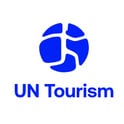UN Tourism Strengthens Collaboration with Austria to Advance Sustainable Tourism
UN Tourism and Austria have discussed opportunities for further collaboration and for strengthening partnerships in the areas of sustainability, statistics and development.
In Vienna, UN Tourism Secretary-General Zurab Pololikashvili held high-level meetings, reaffirming Austria’s important role in advancing sustainable tourism, including through having six of its villages as members of UN Tourism´s Best Tourism Village Programme and the region of Tyrol as one of the latest members of the International Network of Sustainable Tourism Observatories (INSTO).
In a meeting with Susanne Kraus-Winkler, State Secretary for Tourism (Federal Ministry of Labour and Economy), discussions highlighted Austria’s critical leadership as Co-Chair of the Committee on Statistics. The focus was on implementing the Statistical Framework for Measuring the Sustainability of Tourism (MST), endorsed by the United Nations Statistical Commission earlier this year. Austria’s leadership has been instrumental in developing this internationally agreed framework, which provides essential concepts, definitions, and structures to measure tourism’s economic, social, and environmental impacts and dependencies.
A leading tourism destination like Austria can play an important role in advancing global tourism issues, such as the SF-MST, while at the same time to ensure that through such measurement instruments tourism remains a key driver of sustainable and inclusive development. UN Tourism commends Austria’s clear commitment to shaping a sustainable and resilient tourism future, and its leadership at both the regional and global level in this regard that also is highlighted through a comparatively big number of Best Tourism Villages and one of the leading destinations as a member in the INSTO Network. Secretary-General Pololikashvili
During talks with Ambassador Harald Stranzl, Director for Foreign Economic Relations (Federal Ministry for European and International Affairs), discussions centered on leveraging Austrian expertise to advance development cooperation in tourism. Both sides emphasized Austria’s potential to share its wealth of knowledge and technical capacity to drive sustainable tourism initiatives worldwide.
According to UN Tourism’s latest data, Austria ranks 10th globally in international tourist arrivals, welcoming 30.9 million international arrivals in 2023. It also ranks at 19th in international tourism receipts, with the sector generating 22.8 billion EUR, last year, around 11% higher than in 2019.
About UN Tourism
The World Tourism Organization (UN Tourism), a United Nations specialised agency, is the leading international organisation with the decisive and central role in promoting the development of responsible, sustainable and universally accessible tourism. It serves as a global forum for tourism policy issues and a practical source of tourism know-how. Its membership includes 166 countries, 6 territories, 2 permanent observers and over 500 Affiliate Members from the private sector.
Media enquires: [email protected]
UN Tourism Communications Department
+34 91 567 8100
UN Tourism
